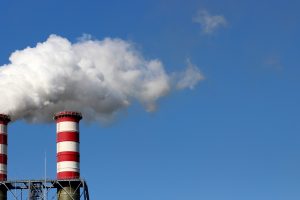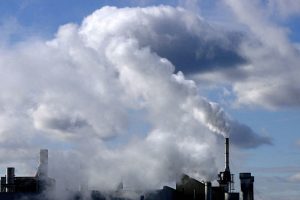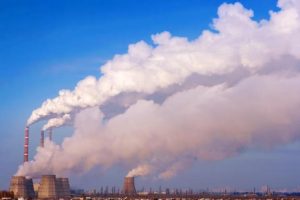 January 20, 2026
by Charlie Kabelac
Air
Chemicals
January 20, 2026
by Charlie Kabelac
Air
Chemicals
Fireworks remain a popular form of celebration for holidays, festivals, or other occasions. Yet, mounting research on environmental pollution, animal disturbance, and health hazards raises questions about their justifiability, especially as more sustainable alternatives emerge.
 November 21, 2025
by Lucy Mao
Air
Fossil Fuels
Regulations
November 21, 2025
by Lucy Mao
Air
Fossil Fuels
Regulations
Amid significant carbon emissions in the aviation industry, emissions labels in Google Flights’ search results may encourage more eco-friendly consumer behavior and spur regulatory reform.
 February 6, 2025
by Carly Tolin
Air
State and Local
February 6, 2025
by Carly Tolin
Air
State and Local
California’s inmate-firefighters save the state millions of dollars battling wildfires, but face low pay and enhanced risks. Reforms for fair wages, safer conditions, and better pathways for post-release job opportunities are long overdue.
 November 25, 2024
by Jay Sullivan
Air
Litigation
November 25, 2024
by Jay Sullivan
Air
Litigation
The Supreme Court will resolve a dispute on the proper venue for challenges to EPA’s disapproval of 21 states’ plans for ozone pollution under the Clean Air Act. The case continues the Court’s trend of hearing administrative and environmental law cases, and its outcome will shape the judiciary’s role in federal air pollution policy.
 April 12, 2024
by Christopher Slama
Air
Chemicals
Climate change
Regulations
April 12, 2024
by Christopher Slama
Air
Chemicals
Climate change
Regulations
Late last year, the EPA issued a formal Endangerment Finding, the first step in almost thirty years toward reducing the largest source of lead in the atmosphere. What took so long?
 April 8, 2024
by Jack Hatzimemos
Air
Regulations
State and Local
April 8, 2024
by Jack Hatzimemos
Air
Regulations
State and Local
After years of years of roadblocks and anticipation, New York City is scheduled to introduce its controversial Congestion Pricing toll in June. The congestion toll, which will charge drivers of standard vehicles $15 to enter parts of lower Manhattan, aims to reduce traffic build up and air pollution in the city. However, the toll has been met with tremendous scrutiny, particularly on the true environmental impact of the project.
 February 23, 2024
by Diego Huerta
Air
Climate change
Fossil Fuels
Regulations
State and Local
February 23, 2024
by Diego Huerta
Air
Climate change
Fossil Fuels
Regulations
State and Local
Massachusetts v. EPA is seen as an unalloyed victory for the climate movement, but over 15 years after the case was handed down, legal knock-on effects from the decision have come back to bite.
 February 23, 2024
by Paige Power Kendrick
Air
Climate change
Fossil Fuels
Regulations
February 23, 2024
by Paige Power Kendrick
Air
Climate change
Fossil Fuels
Regulations
In the hope to leave Zombie Engines in the past, the EPA recently promulgated a new final rule on Greenhouse Gas Emissions Standards for Heavy-Duty Vehicles. In this GELR blog post, Paige Kendrick analyzes the recent changes regarding federal preemption of non-new locomotives and locomotive engines as well as steps being taken by California to reduce locomotive emissions.
 January 29, 2024
by Mary Bush
Air
International
Natural Resources
January 29, 2024
by Mary Bush
Air
International
Natural Resources
As air pollution and global warming worsens across the United States, attorneys are looking to the Atmospheric Trust Doctrine to hold states accountable for their pollution.
 October 30, 2023
by Kathryn Blanco
Air
Fossil Fuels
Oil and Gas
October 30, 2023
by Kathryn Blanco
Air
Fossil Fuels
Oil and Gas
Amid growing concern over the health and climate impacts of natural gas appliances, the Washington, D.C. council has proposed a solution with the Healthy Homes Act.











